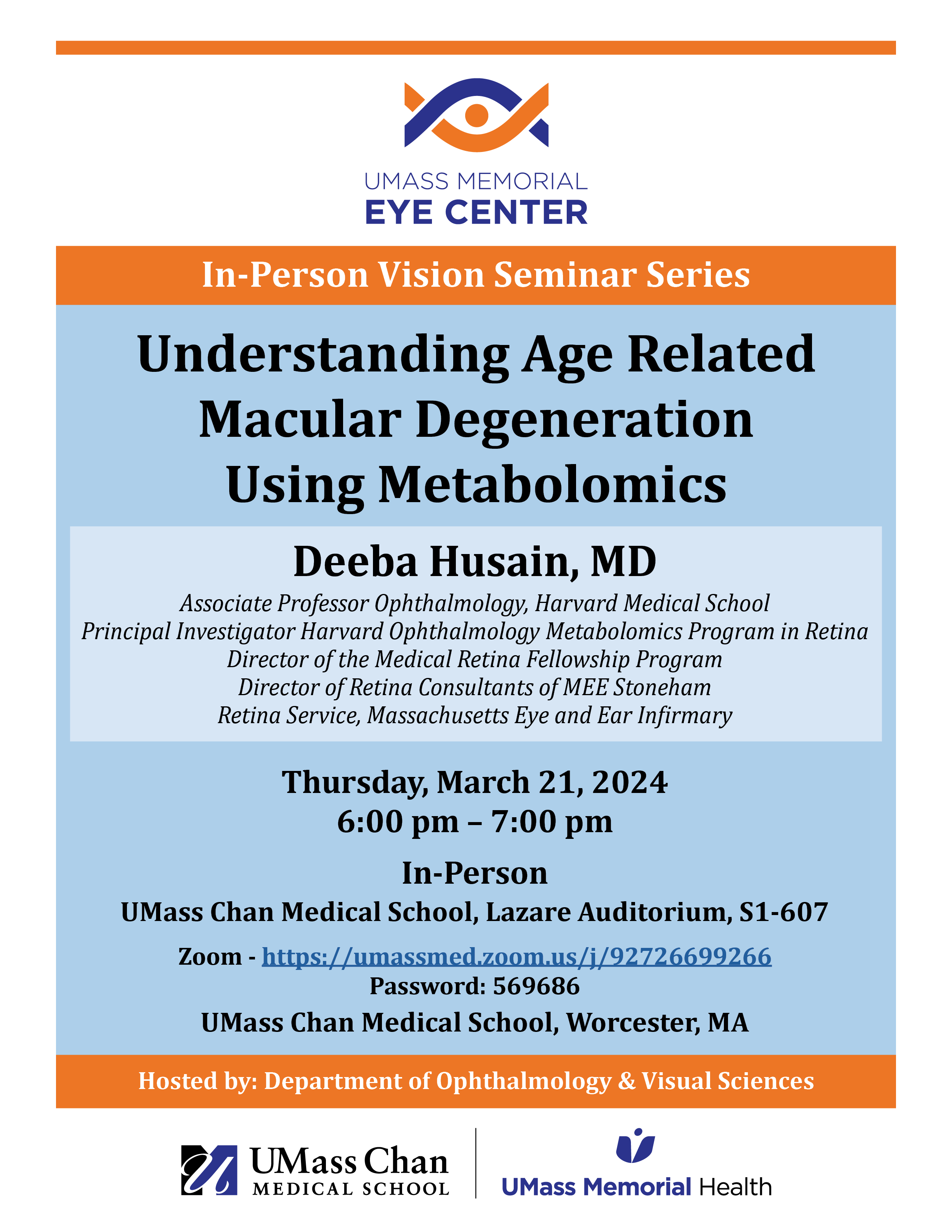Understanding Age Related Macular Degeneration Using Metabolomics
Date Posted: Thursday, March 21, 2024Age-related macular degeneration (AMD) is the leading cause of blindness in the elderly in developed nations, representing a significant socioeconomic burden. Even though its multifactorial nature is well recognized, the pathogenesis of AMD is not fully understood. This has led to the current absence of treatment for the early and intermediate forms of AMD and lack of reliable ways to determine risk prediction for progression. Thus, there is great need for better understanding of AMD pathobiology and biomarker identification.
Metabolomics—the qualitative and quantitative analysis of metabolites (molecules <1 kDa)—is an appropriate approach to address these needs. While the metabolome is downstream of the genome, transcriptome, and proteome, it is simultaneously impacted by a wide range of environmental exposures. Therefore, the metabolome closely represents phenotype, as demonstrated in many complex conditions. To evaluate the role of metabolomics in AMD, our group initiated a large prospective study of AMD patients and compared to controls, with differences across AMD severity stages, and are following them every year for the past 9 yrs. The talk will describe our work so far. The aim of this project is to provide a unique strategy to increase the current understanding of AMD pathogenesis, the identification of biologically robust biomarkers of AMD and disease progression in accessible biofluids and ushering in an era of precision medicine for this blinding condition.

